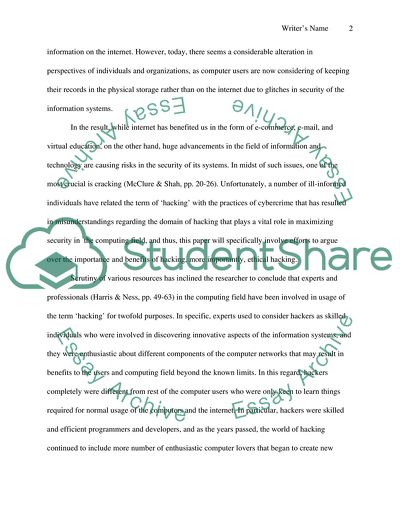Cite this document
(“Computer Hacking Dissertation Example | Topics and Well Written Essays - 3500 words”, n.d.)
Computer Hacking Dissertation Example | Topics and Well Written Essays - 3500 words. Retrieved from https://studentshare.org/information-technology/1743533-computer-hacking
Computer Hacking Dissertation Example | Topics and Well Written Essays - 3500 words. Retrieved from https://studentshare.org/information-technology/1743533-computer-hacking
(Computer Hacking Dissertation Example | Topics and Well Written Essays - 3500 Words)
Computer Hacking Dissertation Example | Topics and Well Written Essays - 3500 Words. https://studentshare.org/information-technology/1743533-computer-hacking.
Computer Hacking Dissertation Example | Topics and Well Written Essays - 3500 Words. https://studentshare.org/information-technology/1743533-computer-hacking.
“Computer Hacking Dissertation Example | Topics and Well Written Essays - 3500 Words”, n.d. https://studentshare.org/information-technology/1743533-computer-hacking.


